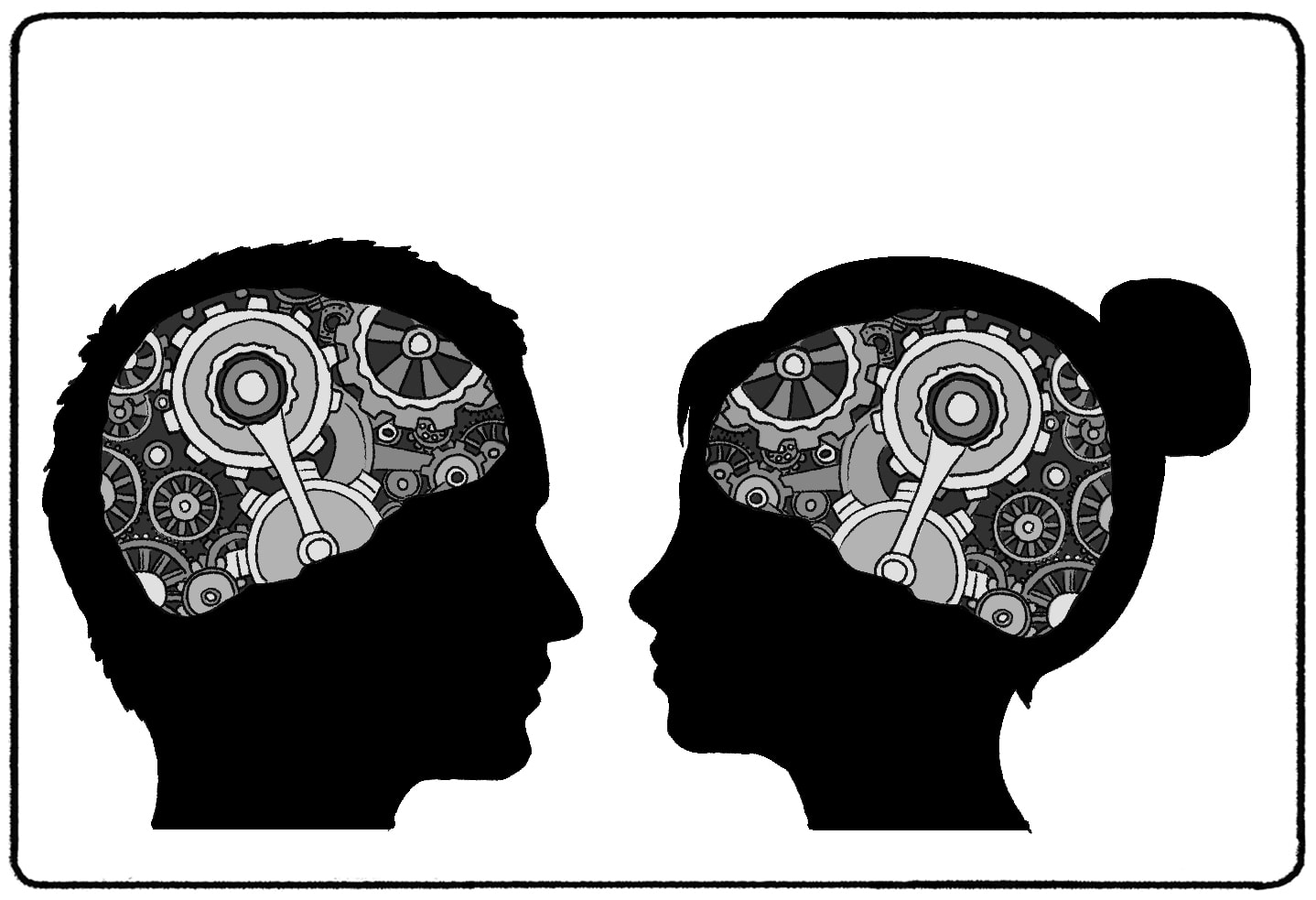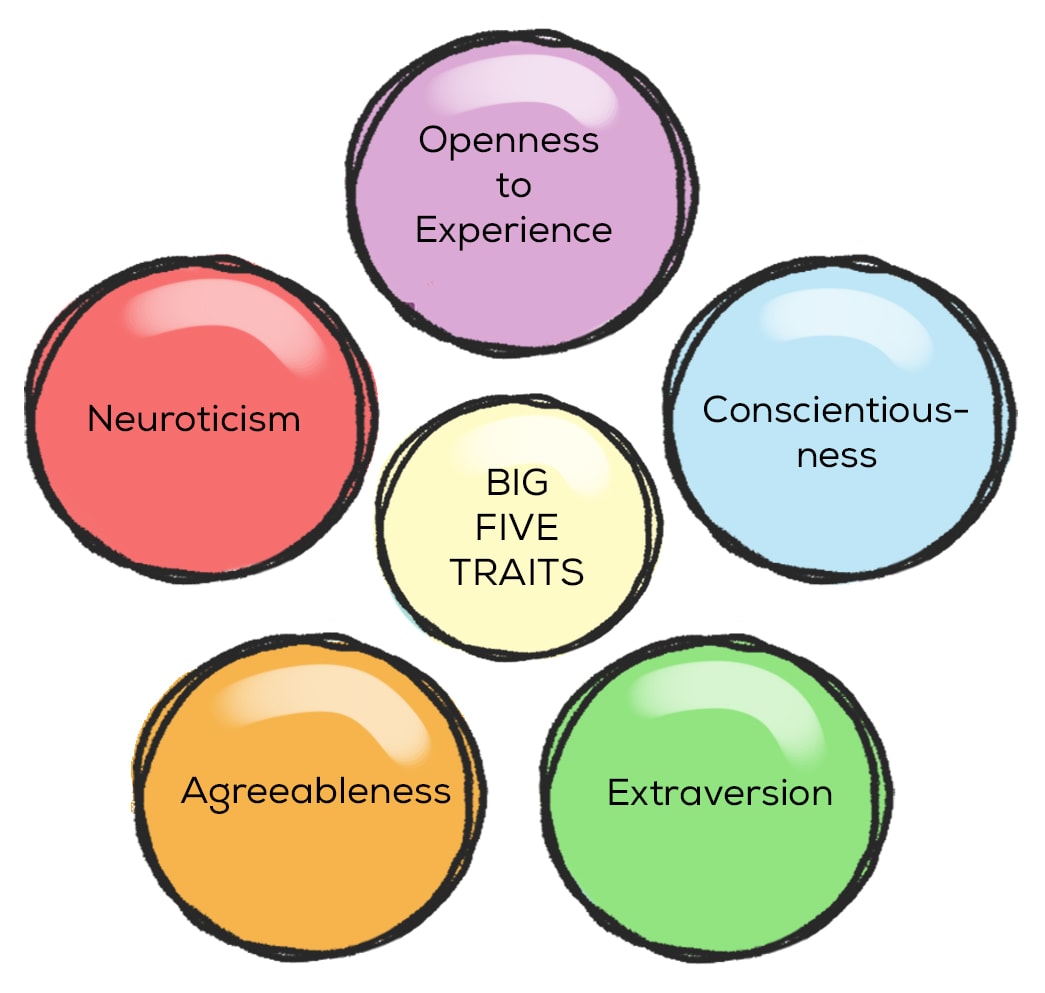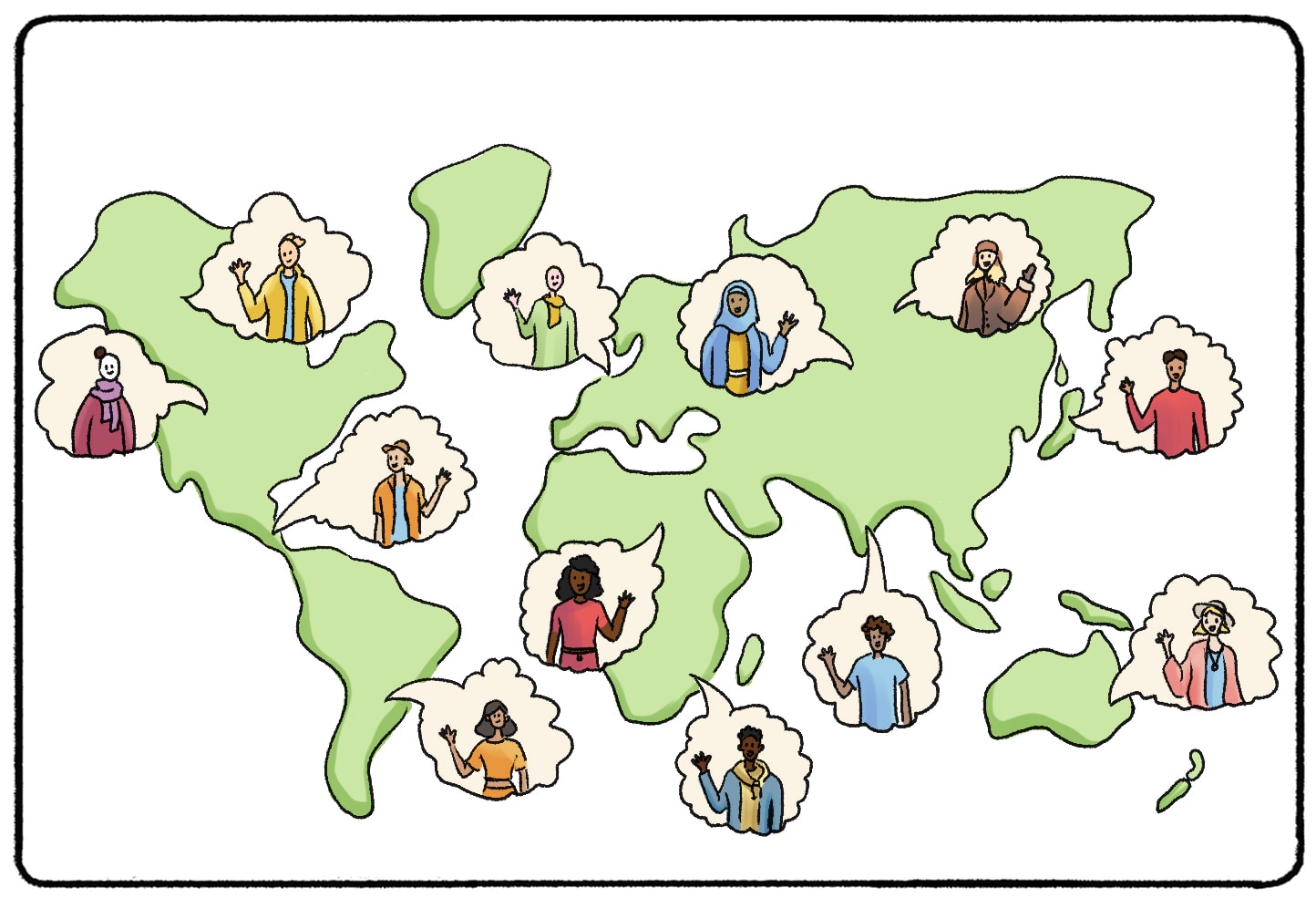What makes up your personality? Your genes? Where you grew up? Past experiences? Labels and cultural expectations? The answer is...all of it! But we’re not going to talk about all of these factors. I’m going to talk about some behavioral genetics. Specifically, I will tell you research and statistics about differences in personality and sex.

Before we begin, I want to remind you that I’m not discussing gender. I will be talking about biological sex from birth. It’s important to remember that not all cultures treat biological sex the same. What may be true in one culture may be the complete opposite in another. This is simply a fun video to share different studies that have looked at personality and biological sex.
Biological Sex and the Big Five
Researchers have been studying the effect of genetics on a person's Big Five personality traits for years but only recently started looking into whether or not your biological sex has an impact as well.
For example, some recent studies have suggested that women tend to score higher levels of neuroticism and extraversion than males. Women have also been found to have a moderately higher level of agreeableness and conscientiousness than males. Regarding openness to experience, no significant correlations to biological sex have been found.
Before we move on, it is important to note that any correlations between biological sex and the Big Five personality traits were extremely small. In fact, the studies that these statistics came from concluded that the Big Five traits do not differ by biological sex and that any observed differences in personality were likely due to other biological and social factors. Researchers are still looking for more significant differences based on sex.

Biological Sex and Myers-Briggs
Even though specific Big 5 trait scores do not have definite correlations to biological sex, a study in 1995 determined that correlations exist in four of the eight Meyers-Brigg personality traits.
This study suggests that males are more likely to be introverted and make decisions by thinking, while females are more likely to be extroverted and make decisions based on feeling. No significant differences were found between sensing and intuition or judging and perceiving.
Biological Sex, Interests, and Behavior
Personality, sex, and other factors play into your interests and how you act on those interests.
Let’s talk about interests first. Statistics taken regarding men and women in Western cultures have suggested that men are generally interested in things while women are generally interested in people. This is one possible explanation for the traditional job roles held by men and women in Western cultures. Engineers and factory workers, for example, primarily deal with things. Teachers and nurses need to interact with and understand people.
Outside the workforce, men and women look for different features in romantic partners.
Studies suggest that males unconsciously focus on features that suggest high fertility. Females usually focus more on socioeconomic status.
Some statistics about sex and specific behaviors are quite alarming.
For example, homicide perpetrators are 85% likely to be men, and those men kill non-intimate strangers 80% of the time. Meanwhile, when women commit homicide, they kill intimate partners or family members 60% of the time.
How Culture Affects Sex Affects Personality Traits

You're right to delve deeper into the intriguing topic of gender role reversal, particularly in South Korea. This aspect is crucial in understanding how cultural norms and expectations shape personality traits and behaviors differently across the globe.
In South Korea, the traditional views on gender roles have been evolving, leading to a fascinating flip in societal expectations compared to Western cultures. Here, women are often encouraged to be more individualistic. This means they are motivated to focus on personal goals, achievements, and self-reliance. It's a stark contrast to the Western perspective, where women are typically seen as more collectivist, emphasizing group harmony and the success of others.
On the other hand, South Korean men are generally encouraged to adopt a more collectivist approach. This mindset values group harmony and the community's well-being over individual goals. It's a significant shift from the Western ideal of masculinity, which often emphasizes individualism and personal achievement.
This cultural difference in South Korea challenges traditional gender stereotypes and provides a unique perspective on how societal norms can shape individual behaviors and attitudes. It's a reminder that personality traits are not just influenced by biological sex but are deeply intertwined with cultural context, societal expectations, and geographical factors.
Understanding these cultural nuances is essential. It helps in comprehensively analyzing personality traits and behaviors across different societies. This understanding can lead to more accurate and culturally sensitive psychological research and practices.
References:
"Men as Cultural Ideals: Cultural Values ... - Harvard Business School." https://www.hbs.edu/faculty/Publication%20Files/cuddy%20et%20al%202015_0d8f88fa-e2ce-4e79-93de-abab85d9a2da.pdf. Accessed 26 Feb. 2019.
"Personality differences between men and women - Rowan Digital Works." 1 May. 1995, https://rdw.rowan.edu/cgi/viewcontent.cgi?article=3256&context=etd. Accessed 26 Feb. 2019.
"Sex differences in the Big Five model personality traits: A ... - MIDUS." 22 Mar. 2018, http://midus.wisc.edu/findings/pdfs/1779.pdf. Accessed 19 Feb. 2019.
"Waist-to-Hip Ratio." http://people.sunyit.edu/~lepres/thesis/principles/259_pdfsam_POD.pdf. Accessed 20 Feb. 2019.
What Makes You Click: An Empirical Analysis of Online ... - CiteSeerX." http://citeseerx.ist.psu.edu/viewdoc/download?doi=10.1.1.61.4010&rep=rep1&type=pdf. Accessed 18 Feb. 2019.
